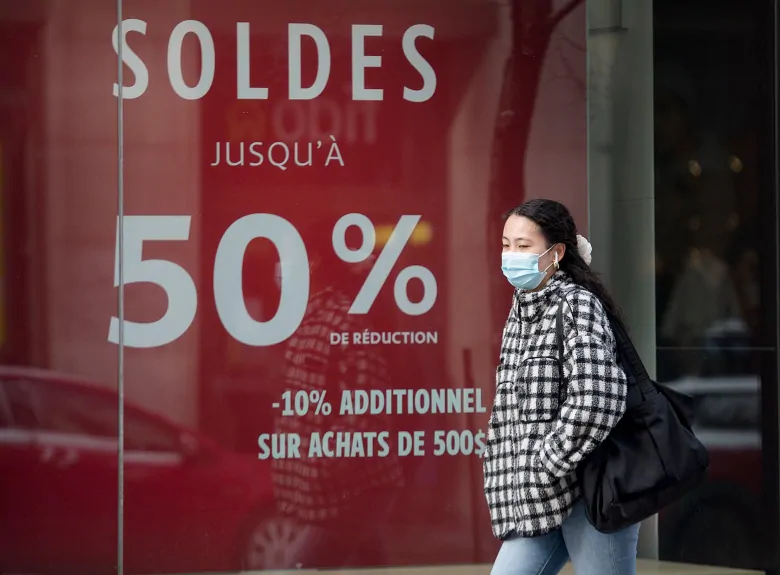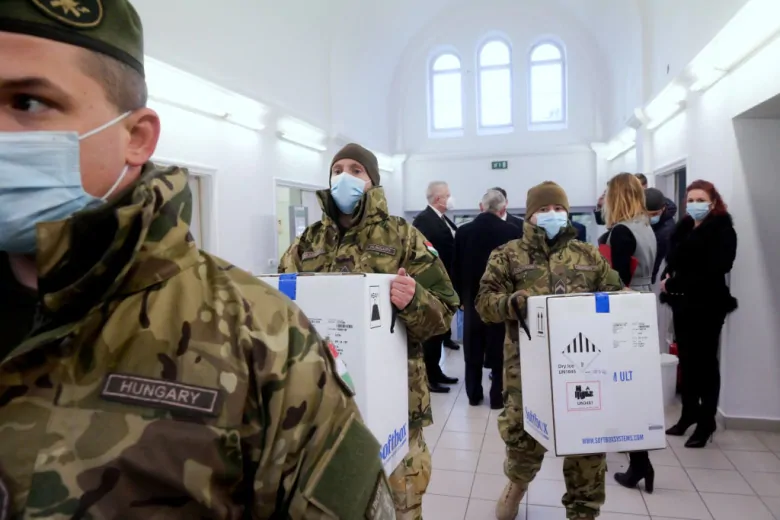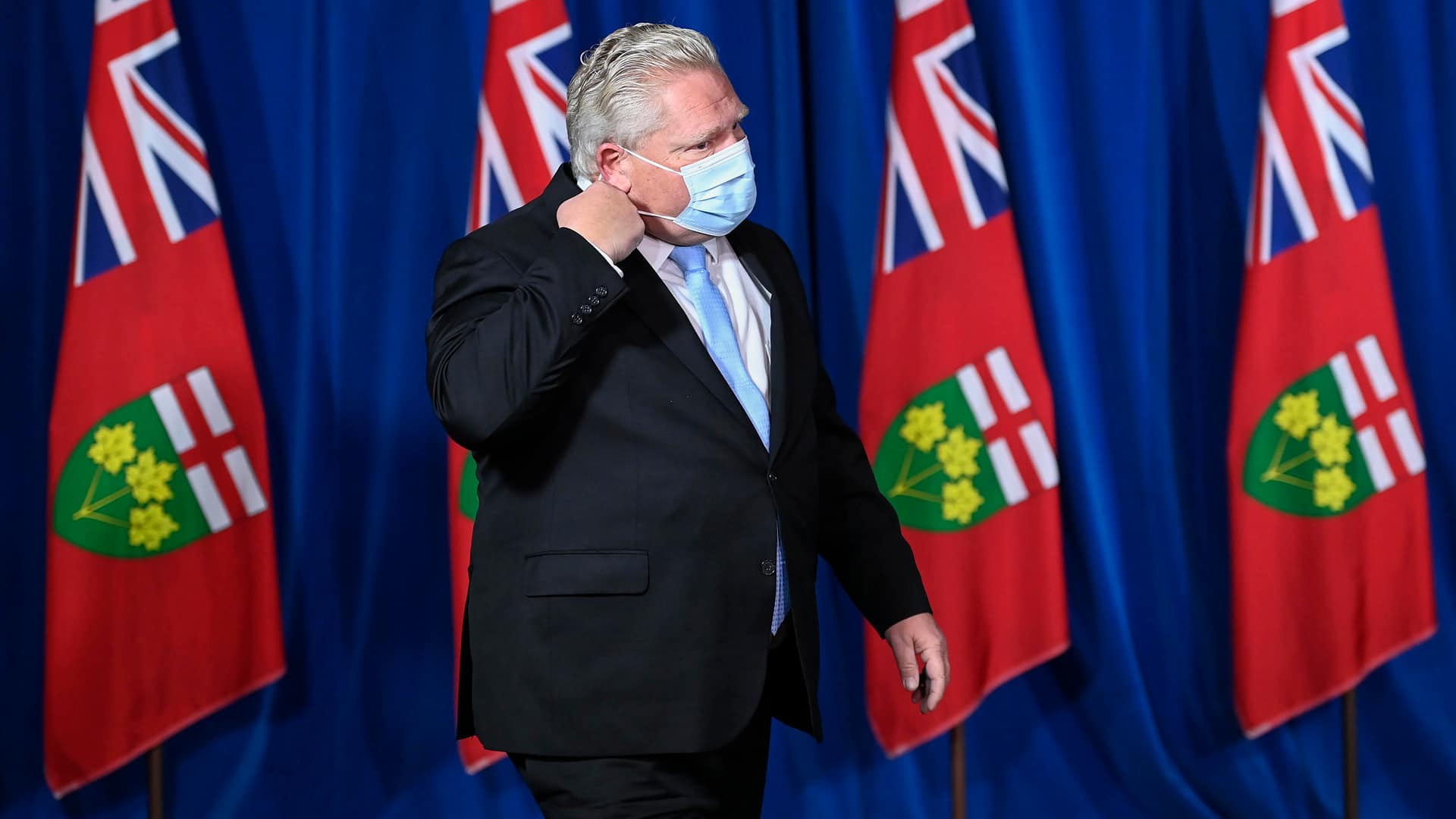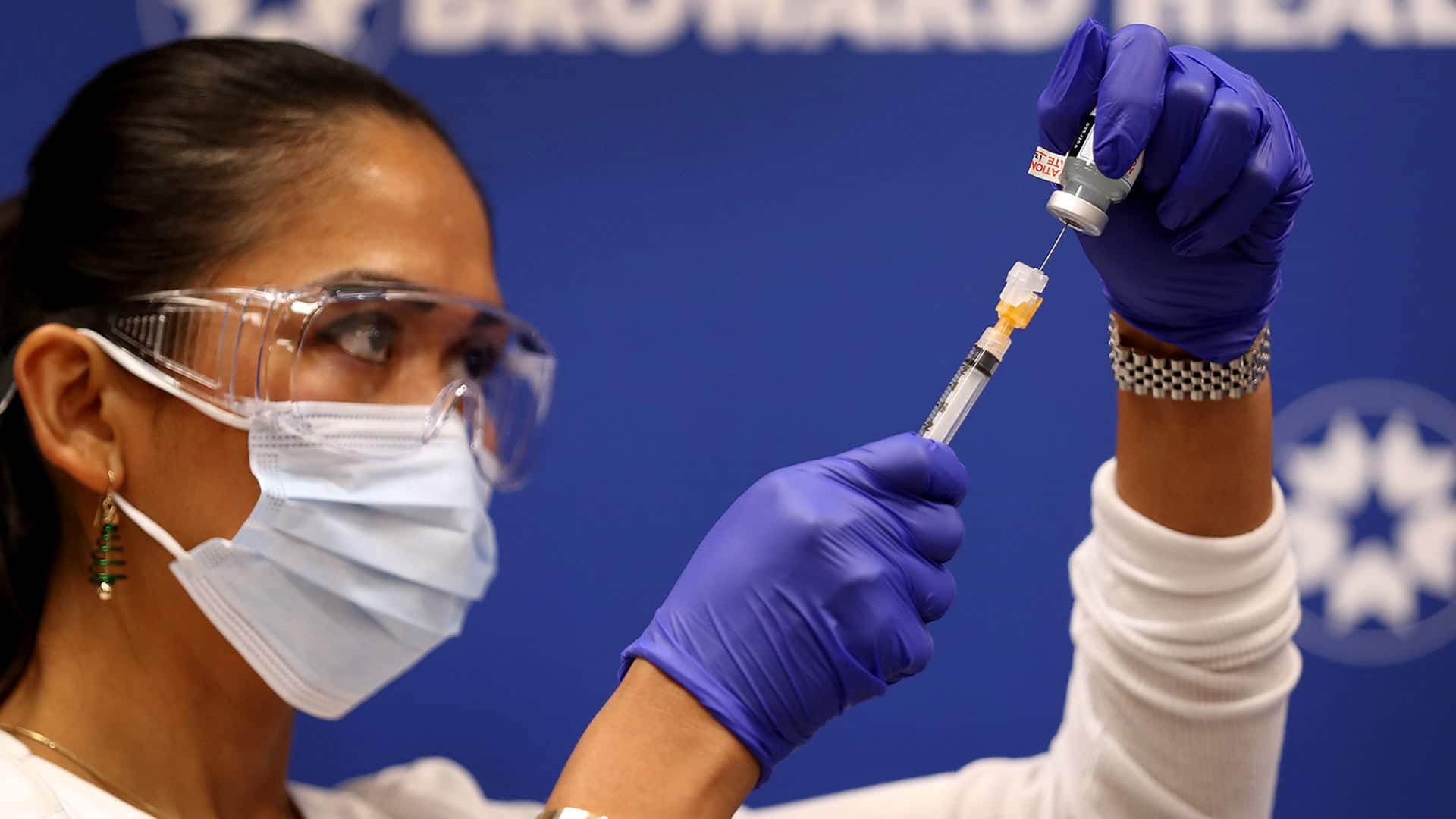The latest:
- Vaccine campaigns roll out across European Union.
- Ontario becomes 1st province to identify new COVID-19 variant.
- Ontario enters provincewide lockdown in effort to curb rising COVID-19 case counts.
- Japan to ban entry of foreign travellers to fight spread of new COVID-19 variant.
- Most Boxing Day shopping expected to happen online.
- Have a question about COVID-19 in Canada? Send your questions to COVID@cbc.ca.
Europe launched a massive vaccination drive on Sunday with seniors and health-care workers first in line to be inoculated against COVID-19 during a pandemic that has claimed more than 1.7 million lives worldwide.
The region of 450 million people has secured contracts with suppliers for more than two billion doses of the Pfizer-BioNTech vaccine and has set a goal for all adults to be inoculated during 2021.
The first person to get the vaccine in Berlin was Gertrude Haase, who is 101 years old and lives in a nursing home.
“It (the virus) is very dangerous. We hear and read about it, and there are so many people dying in other homes,” Haase said. “It is horrible, and that is why it is so good that we can be vaccinated against it. It is a big advantage for all of us who live here.”
In Canada, a new strain of the virus that causes COVID-19, first discovered earlier this month in Britain, was detected in Ontario. The variant has been detected in several other countries, including Denmark, Belgium, France, Australia and the Netherlands.
WATCH | Ontario identifies U.K. COVID-19 variant in province:
A couple was found to be carrying the virus, but neither had travelled or been in contact with a known case, officials say. 2:45
The province’s associate chief medical officer of health, Dr. Barbara Yaffe, said in a news release Saturday that the strain of COVID-19 was identified in a couple from Durham Region, just east of Toronto, who have no known travel history, exposure or high-risk contacts.
Provincial health officials say modelling and epidemiological studies suggest the variant can spread more easily and faster than the original version of the novel coronavirus — but is not believed to be more deadly.
WATCH | Pfizer, Moderna vaccines can be modified to tackle variants, expert says:
According to infectious disease specialist Dr. Zain Chagla, vaccines that use mRNA technology can be reverse engineered quite quickly to take on variants — such as the recent U.K. variant of the coronavirus. 1:42
“While early data suggests that these new variants may be more transmissible, to date there is no evidence that they cause more severe disease or have any impact on antibody response or vaccine effectiveness,” the Public Health Agency of Canada said.
News of the new variant arriving in Canada came as a provincewide lockdown meant to slow the spread of COVID-19 took effect in Ontario.
WATCH | Provincewide lockdown comes into effect in Ontario:
New restrictions came into effect Saturday, placing the entire province of Ontario in lockdown. In some regions, the measures will stay in place until at least Jan. 23. 4:18
The restrictions will remain in place for southern Ontario until Jan. 23 but will lift for northern Ontario on Jan. 9.
Under the new rules, restaurants can only provide take-out and delivery, non-essential stores can only provide curbside pick-up and delivery. Supermarkets, pharmacies and retailers that sell food can stay open, but with capacity limits and physical distancing measures.
The lockdown began with Ontario reporting a two-day total of 4,301 cases of COVID-19 on Saturday.
What’s happening in Canada
As of 6:30 a.m. ET, Canada’s COVID-19 case count stood at 541,647, with 78,623 of those cases considered active. A CBC News tally of deaths stood at 14,801.

In Quebec, a provincewide lockdown went into effect Friday, with businesses deemed non-essential ordered to remain closed until at least Jan. 11. The province did not publish data on the number of new infections or deaths on Friday or Saturday.
Aside from Ontario, the only provinces to release new numbers on Saturday were New Brunswick and Alberta.
New Brunswick announced two new cases, which means the province now has 38 active cases. There have been eight deaths and one person is in hospital, in the intensive care unit.
In Alberta, Chief Medical Officer of Health Dr. Deena Hinshaw released a modified update on Saturday. The province saw an estimated 1,200 new cases on Dec. 24 and 900 new cases on Dec. 25. There was a small increase in the number of patients in the province’s ICU, Hinshaw said on Twitter.
With Ontario joining Manitoba and Quebec in closing non-essential retail stores for in-person shopping and much of the rest of Canada curtailing in-store capacity, the new rules have been having an effect on Boxing Day shopping. The limitations are forcing bargain hunters in many parts of the country to look online for deals instead of lining up and crowding into stores in person.
What’s happening around the world
As of 7 a.m. ET on Sunday, more than 80.4 million coronavirus cases had been reported worldwide, with more than 45.4 million cases considered recovered or resolved, according to a running tally kept by Johns Hopkins University researchers. The global death toll stood at more than 1.7 million.
WATCH | Is one COVID-19 vaccine better than another?:
Infectious disease physicians answer viewer questions about COVID-19 vaccines, including if one is better than another and how vaccinations will impact the health-care system. 6:35
The United States is by far the leader among nations in cases of coronavirus illness, reporting nearly 18.8 million on Saturday. India follows with 10.2 million; Brazil has counted 7.45 million. There have been more than 330,000 deaths in the U.S., 190,000 in Brazil and 147,000 in India.
There have likely been many more cases of the coronavirus that have not been counted for a variety of reasons, including under-reporting, asymptomatic infections and lack of cooperation with contact tracers.

Each European Union country is only getting a fraction of the doses needed, fewer than 10,000 in the first batches with the bigger rollout expected in January when more vaccines become available. All those getting shots will have to come back in three weeks for a second dose.
Altogether, the EU’s 27 nations have recorded at least 16 million coronavirus infections and more than 336,000 deaths — numbers that experts still agree understate the true toll of the pandemic due to missed cases and limited testing.
Japan, meanwhile, says it will ban the entry of all foreign nationals, following the discovery of a new strain of the coronavirus in the U.K. Japan has since Friday discovered at least seven cases of the new strain in passengers who arrived from Britain.

The ban takes effect from Monday and will last until the end of January.
Japanese citizens and residents who are abroad will still be able to return, but must show proof of a recent negative coronavirus test. They will also continue to have to quarantine for two weeks.







